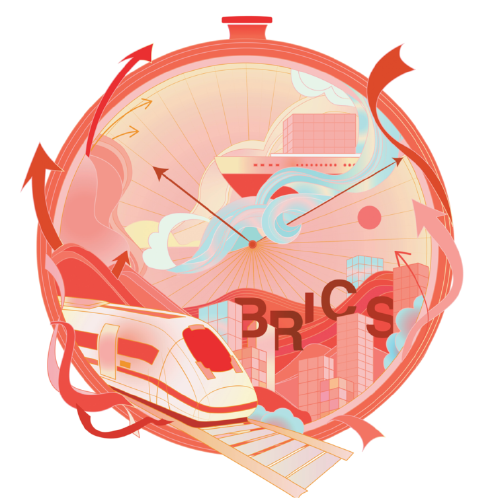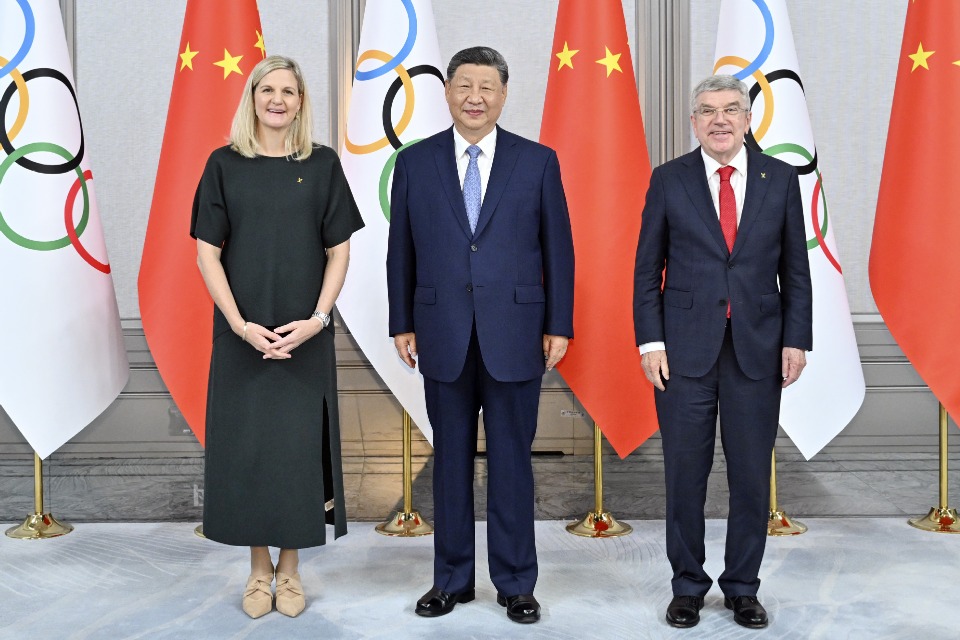Seize the moment
The BRICS countries should strengthen their partnership to improve global economic governance


The BRICS countries should strengthen their partnership to improve global economic governance
The world today is undergoing a rapid transformation and great upheaval. Global development is being buffeted by multiple, mutually-reinforcing crises, including geopolitical conflicts, weak economic recovery, high inflation and debt levels, climate change and extreme weather events, energy and food insecurity, among others. Human society faces unprecedented challenges.
From 2023 to 2025, three BRICS countries — India, Brazil and South Africa — will take turns to serve as the G20 presidencies. These three countries are also representatives of emerging market and developing economies (EMDEs) and have a strong consensus on prompting the G20 to attach more importance to the development agenda. Together, they can consolidate the voice of the Global South in the multilateral bodies. Global economic governance has thus entered a "BRICS moment".
The BRICS countries are highly concerned with the multiple crisis facing EMDEs. For example, on food and energy security, the BRICS countries have jointly advanced the assessment of the impact of food and energy insecurity on the global economy under the framework of the G20, and encouraged the G20 members to build resilient and sustainable global food and energy systems. On public health, the BRICS countries have actively joined the development of a G20 analysis framework for economic vulnerability and risks from pandemics, which could help EMDEs better prevent and respond to the next pandemic. On the climate agenda, under the G20, the BRICS countries and other major developing countries such as Saudi Arabia jointly adhere to the principle of common but differentiated responsibilities and oppose the "one-size-fits-all" emissions reduction model. In terms of financial stability, the BRICS countries also unanimously highlight that tightening monetary policies in developed countries increases the debt vulnerabilities of some EMDEs.
The BRICS countries are jointly pushing forward the reform of international financial institutions to increase development finance. The BRICS countries aim to enhance the representation and voice of EMDEs in the World Bank and the International Monetary Fund. The BRICS countries have also agreed that the G20 should set up an expert group on strengthening multilateral development banks, and encourage all parties to explore feasible ways to expand the resources of these financial institutions and increase development finance. In response to the recent tendency of the World Bank to downplay its mandate to promote poverty reduction and development, the BRICS countries have called on all multilateral development banks to prioritize poverty reduction and inclusive growth projects. The New Development Bank initiated by BRICS also aims to provide effective financing solutions for the sustainable development of EMDEs.
The BRICS countries aim to strengthen infrastructure cooperation and innovate financing models. For example, some of the G20 members, including the BRICS countries, are calling for private finance to be mobilized to build inclusive, resilient and sustainable "cities of tomorrow".
The BRICS countries have a high degree of consensus on revitalizing the momentum of global development and improving global economic governance. As a positive, inspiring and constructive force in the international community, the BRICS countries should establish a sense of a community with a shared future for mankind, uphold the BRICS spirit featuring openness, inclusiveness, and win-win cooperation, and jointly promote global development that is more inclusive, beneficial to all, and resilient. The BRICS countries should seize the "BRICS moment" and make full use of the G20 platform, foster consensus on accelerating development, strengthen the BRICS development partnership, and jointly implement global initiatives such as the Global Development Initiative and the United Nations' 2030 Agenda for Sustainable Development. The BRICS countries should send out the strongest voice for all EMDEs during the 15th BRICS Summit and the upcoming 18th G20 Summit in September urging global development to be brought back on track and the improvement of the global economic governance system.
The core concepts of the Global Development Initiative and the Belt and Road Initiative could be incorporated into the G20 and the BRICS development agendas. The Global Development Initiative advocates "more robust, greener, and more balanced global development" and the Belt and Road Initiative adheres to a "high-standard, sustainable and people-centered approach".Cooperation projects under both initiatives involve, among other things, food and energy, public health, development finance, and climate actions, which are aligned with the agendas of the G20 and BRICS.
A comprehensive and systematic initiative could be proposed to expand global development finance. EMDEs are facing a surge in demand for development finance, insufficient supply, and high level of debt. The BRICS countries could urge developed countries to fulfill their official development assistance and climate finance commitments, and assume primary responsibility for expanding development finance and reducing the negative spillover effects of radical adjustments to their macroeconomic policies. Traditional multilateral development banks such as the World Bank should be encouraged to adhere to the core mandate of promoting poverty reduction and development, and expand development resources significantly through various forms, in particular capital increase. New multilateral development banks such as the Asian Infrastructure Investment Bank and the New Development Bank could play a more important role in addressing the urgent needs of EMDEs through expanding membership and capital scale. The BRICS countries should call on the sovereign debt issue of EMDEs to be properly handled in accordance with the principle of "joint action, fair burden", and multilateral and private creditors to actively participate in debt treatment. Tripartite and multi-party cooperation should be explored to jointly finance infrastructure projects in EMDEs.
The "BRICS+" platform should be leveraged to empower the Global South. South Africa, which holds the presidency this year, has invited the leaders of all African countries and other Global South countries to attend the 15th BRICS Summit. This provides a unique platform to put the Global South at the center of development planning. The BRICS countries could ensure that various parties and platforms, including the G20, remain sensitive to the needs of the Global South, and jointly build a global community for development.
Zhao Changwen is the executive vice-president of the Center for International Knowledge on Development. Zhou Taidong is the vice-president of the CIKD. Zhang Youyi is an associate researcher at the CIKD. The authors contributed this article to China Watch, a think tank powered by China Daily. The views do not necessarily reflect those of China Daily.
Contact the editor at editor@chinawatch.cn.


































